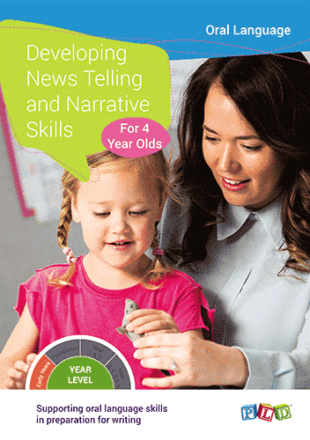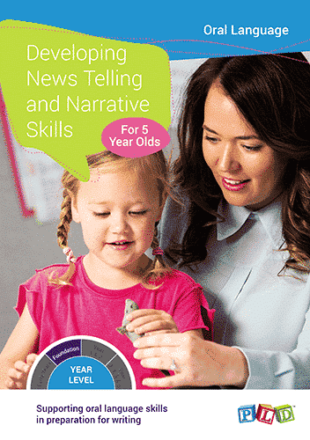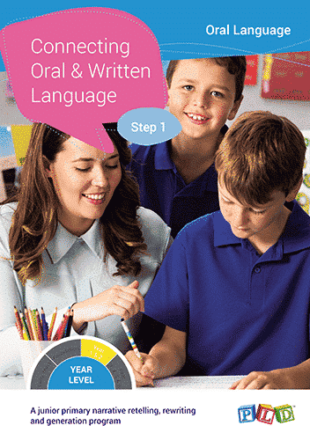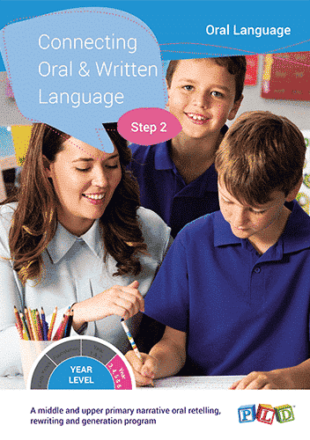We love getting feedback from users of our PLD oral language programs and learning the impact these oral language programs can have in everyday classroom situations. We recently received the following email regarding our Developing Narrative Skills Programs which we have shared with you today.
“Dear PLD Learning Resources, In terms of the narrative retelling program and the narrative program in general, I have been using the program since April and am very pleased to let you know that it is a fabulous success. My students are using a wider vocabulary and retelling narratives in sequence. They are also writing in extended sentences and I am continuing using this format orally in my classroom. Please tell Diana I think she is amazing and this series of programs is one of the very best resources I have ever used.”
The Developing Narrative Skills Program is comprised of 4 age-based products:
We are thrilled teachers are enjoying running the PLD oral language narrative program and most importantly that within a relatively short period of time students are demonstrating the benefits.
Most definitely if you can lead students through a regular process of learning to orally express themselves with higher levels of sophistication, these traits do transfer to their writing.
Maximising Literacy & Oral Language Outcomes with Evidence-Based Programs
Oral language refers to the act of speaking and listening. The main components for the oral language skill set includes word knowledge (vocabulary); sentence structure (grammar); language understanding (semantic and comprehension ability); and structured thinking (or the ability to elaborate, organise and sequence thoughts).
While poor oral language skills do not prevent children from reading, the long-term impact is concerning. By middle primary school, when both the curriculum and reading material increase in difficulty, a significant number of students will struggle to keep up with the demands of the curriculum if they have poorly developed language skills.
PLD has written many programs which can assist in developing strong oral language skills and literacy skills. Speech pathologists have been central to the design of both the literacy and language range. The programs are ideal for first-language English speakers as well as those students whose first language is a language or dialect other than Standard Australian English. By strengthening oral language skills, students’ literacy skills will typically benefit.
About PLD Literacy
PLD provides an Australian, evidence-based approach to Structured Synthetic Phonics (SSP) for primary school educators. Aligned with the Science of Reading, PLD’s SSP approach extends from the Junior Primary years through to the Upper Primary years and thereby facilitating a whole school approach.
PLD’s method is derived from the disciplines of speech pathology, occupational therapy and education. As an Australian publisher and professional development provider, PLD
PLD Underpins High-Performance
The 2015 Department of Education Western Australia study, conducted by Professor William Louden, selected nine top-performing schools based on their NAPLAN results and reviewed their processes. The report, “High Performing Primary Schools: What do they have in common?” noted key characteristics included lower variation in teaching methods and the use of explicit teaching strategies for teaching phonological awareness and phonics.
Among the mandated resources utilised within these schools were synthetic phonics resources. PLD’s programs were commonly used in the schools investigated. Louden found that high-performing schools used explicit teaching strategies for teaching phonological awareness and phonics through a Structured ‘Synthetic Phonics’ program.
PLD received significant mentions in this research. You can find a summary of the research here and the whole article here.

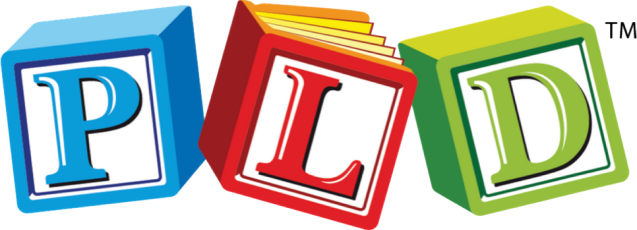

 print
print